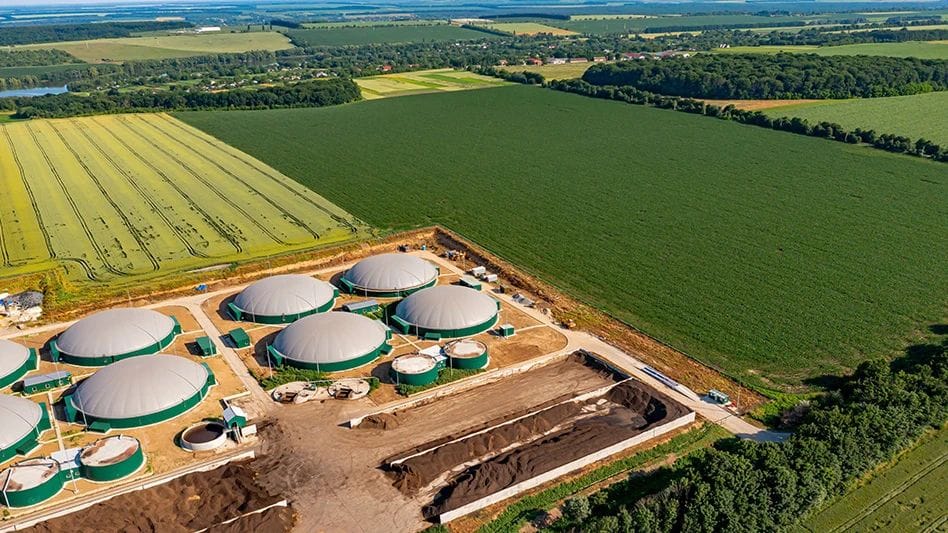Global Industry Leaders Urge GHG Protocol to Recognize Renewable Gas Certificates Ahead of COP30

- More than 30 industrial and utilities companies have signed a joint letter calling on the GHG Protocol to recognize renewable gas certificates as part of its upcoming standards revision.
- The Let Green Gas Count coalition urges the GHG Protocol to issue an interim statement and back market-based instruments such as guarantees of origin and proof of sustainability certificates.
- The appeal aligns with the Brazilian COP Presidency’s pledge to boost renewable fuel production by 2035 and the IEA’s findings on the growing role of biogas and biomethane in global decarbonisation.
Global coalition calls for action
A coalition of leading global manufacturers and energy providers is urging the Greenhouse Gas (GHG) Protocol to explicitly recognize renewable gas certificates and other market-based instruments that incentivize the use of low-carbon gases. The letter, coordinated by the Let Green Gas Count campaign and signed by over 30 companies, calls on the standards body to accelerate its review and issue interim guidance that supports biomethane and other renewable gases.
The GHG Protocol—jointly managed by the World Resources Institute and the World Business Council for Sustainable Development—guides 97% of the Fortune 500 and underpins global carbon accounting. Its current framework, last updated before the growth of renewable gas markets, does not explicitly allow companies to claim credit for purchasing certified renewable gas.
Industry alignment ahead of COP30
The appeal comes as countries prepare for COP30 in Belém, Brazil, where the host nation has pledged to quadruple renewable fuel production by 2035. The coalition’s letter echoes this call for investment and market recognition, warning that without reform, the GHG Protocol risks discouraging decarbonisation in industries where electrification is not technically or economically feasible.
Coordinated by Eurogas, the European Biogas Association, the American Biogas Council, and others, the Let Green Gas Count campaign emphasizes that clear recognition of market-based tools will help scale investment in renewable gases and strengthen investor confidence.
“European industry needs GHG accounting standards that are fit for purpose and acknowledge renewable gases’ pivotal role in reducing industrial emissions,” said Andreas Guth, Secretary General of Eurogas. “This review is a prime opportunity to bring the Protocol up-to-date and boost investor confidence in biogas, biomethane and derivatives around the world.”

Decarbonizing hard-to-abate sectors
Signatories include major global companies such as Nestlé, Volvo Trucks, Tata Steel Nederland, Pernod Ricard, Electrolux Group, and Carrefour. They represent industries that rely on high heat, off-grid supply, or continuous operations—areas where renewable gases are often the only immediate decarbonization pathway.
RELATED ARTICLE: Coalition Presses GHG Protocol to Recognize Biogas and RNG in Corporate Emissions Reporting
“Our company strongly believes that biomethane can play a big part in decarbonizing steel and energy-intensive industries,” said Albert Kassies, Director of New Energy at Tata Steel Nederland. “Before this is the case some hurdles need to be taken down. Biomethane not being supported in the Greenhouse Gas Protocol is one of them.”

Maria Pia De Caro, Executive Vice President at Pernod Ricard, added that biomethane plays a key role in closing the loop by valorizing by-products. “Clear guidance from the GHG Protocol will be essential to scale this approach globally,” she said.

Volvo Trucks also called for stronger recognition, noting that market-based tools would help accelerate decarbonisation of industrial operations and transport. “When the GHG Protocol recognizes renewable gas certificates, the market for renewable gases can grow more quickly,” said Lars Mårtensson, Environmental Director at Volvo Trucks.

Expanding renewable gas markets
According to the International Energy Agency’s 2025 Outlook for Biogas and Biomethane, policymakers have introduced more than 50 new policies since 2020 to promote biogas uptake. Yet, despite global momentum, only about 5% of sustainable biogas and biomethane production potential is currently used.
Patrick Serfass, Executive Director of the American Biogas Council, described biogas as the “Swiss Army knife” of renewable fuels—“often carbon negative, always community positive, and vital for cutting emissions in industries that are hardest to decarbonize.”

The signatories are calling for the GHG Protocol to:
• Issue an interim statement recognizing market-based certificates for renewable gases.
• Explicitly include guarantees of origin and proof of sustainability schemes in the forthcoming revision.
• Fast-track the standards review to reduce uncertainty for investors and companies.
The GHG Protocol’s revised framework is due by 2028. Industry leaders argue that interim clarity is essential now to enable renewable gases to scale and contribute effectively to global Net Zero goals.
Download the full letter submitted to the GHG Protocol
Follow ESG News on LinkedIn












